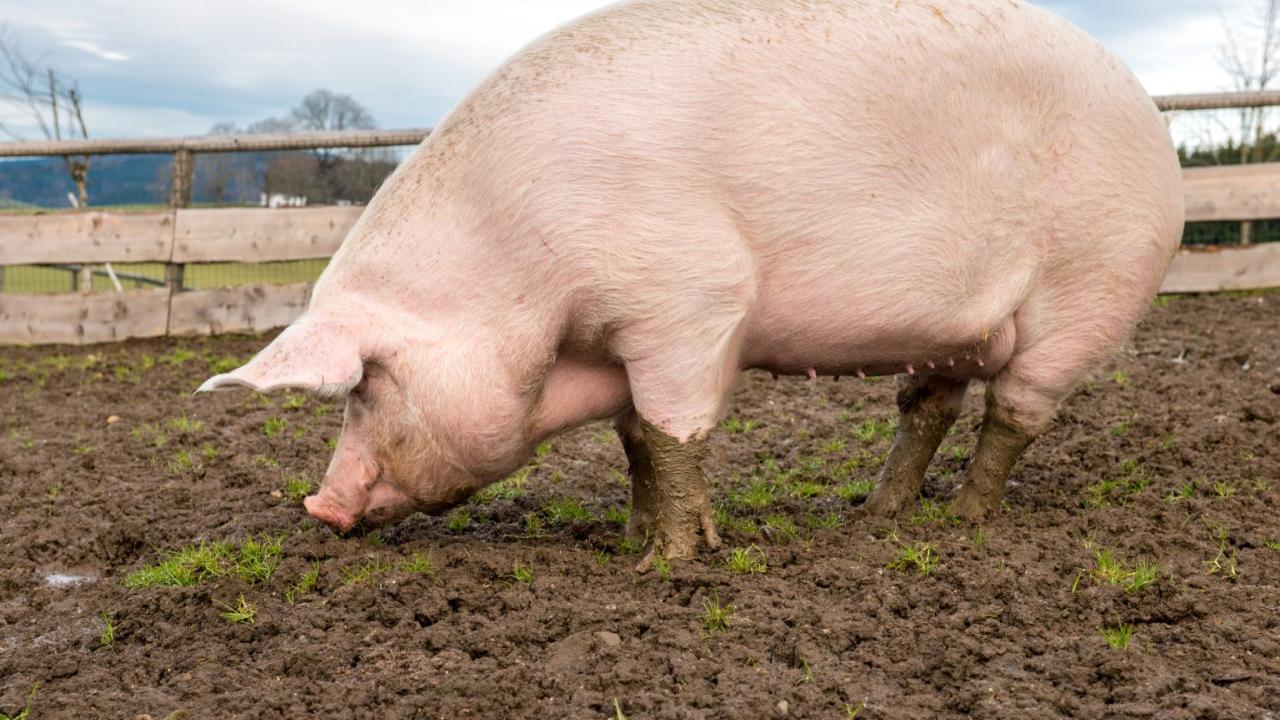
Creating a New Generation of Vet Data Scientists to Safeguard Animal Health
Veterinary medicine is at the forefront of solving societal problems thanks to innovative use of big data and artificial intelligence. UC Davis is part of a national interdisciplinary team awarded a prestigious Convergence Accelerator Award from the National Science Foundation to expand the current functionality of the Disease BioPortal, a user-friendly platform to safeguard animal health and prevent infectious disease outbreaks on farms.
“Disease outbreaks in swine, poultry and dairy industries are not only detrimental to the animals infected, but they also cause major damage to the sustainability of the livestock industry and the economy of this country,” said Dr. Beatriz Martinez-Lopez, professor of veterinary epidemiology at the UC Davis School of Veterinary Medicine and one of the four principal investigators for the precision epidemiology consortium (pEPIC).
The pEPIC team is expanding the Disease BioPortal web-based platform that streamlines data from diagnostic laboratories, producers and veterinarians to incorporate advanced models and decision support tools driven by artificial intelligence.
“Our main focus in on explainable machine learning models, but we are integrating topic models, causal discovery and federated learning approaches,” said Dr. Xin Liu, professor of computer science in the UC Davis Computer Science Department and part of the co-PI team.
These tools aim to help controlling existing pathogens, preventing the introduction of new diseases, and mitigating One Health issues such as antimicrobial resistance. User-friendly dashboards on desktop computers or mobile apps provide valuable information to subscribers to prevent and track outbreaks.
At the moment, most of the work is focused on the swine industry. The team is collaborating with the National Pork Board, the top 10 swine producers in the US, the largest veterinary diagnostic lab in Iowa and several other data providers and users, including GlobalVetLink and pharma companies.
“Our end-users will benefit from the multiple Disease BioPortal tools to support more informed animal health decisions: from risk assessment or early detection to trend analysis, benchmarking and prediction models,” said Dr. Maria Jose Clavijo, an assistant professor from Iowa State University and PIC swine veterinarian part of the co-PI team.
They are demonstrating the value of the tools for some of the most problematic issues in the swine industry including endemic viral pathogens such as swine influenza or porcine reproductive respiratory syndrome (the costliest disease to U.S. swine producers at $1B a year), bacterial infections such as Streptococcus suis and emerging issues such as antibiotic resistance.
“Many of these endemic pathogens are really difficult to control or eradicate,” Martinez-Lopez explained. “Our tool provides valuable insights that allow veterinarians and farmers to more cost-effectively allocate prevention and control strategies such as vaccines, testing, increased biosecurity or treatments. This directly improves animal health and wellbeing while increasing production efficiency and saving producers millions of dollars per year.”
With this tool, veterinarians, diagnosticians, and producers can more easily and promptly visualize and trace the status of their farms, identify which strain is prevalent at each location, and recognize high risk movements for disease transmission. That gives stakeholders an indication if a vaccine or other interventions may work, such as better management of flows or stronger biosecurity measures.
“Currently, we can also conduct effective outbreak investigations with this platform,” Martinez-Lopez said. “It provides quick, updated information not only on animal diagnostics, but also on animal movements and pathogen genomes, which allows the identification of potential sources of infection and routes of spread to other farms. Producers love it for that reason.”
During the next months, the platform will also have new AI models.
“We are including AI capabilities of causal discovery and inference, which will allow veterinarians and producers to rapidly and more systematically identify causal relationships between management practices and risk factors, and significantly improve disease diagnosis and risk prediction,” said Dr. Kun Zhang, co-PI, associate professor in the Philosophy and Machine Learning Departments at Carnegie Mellon University.
The consortium hopes the tool will also help prevent and potentially better control African swine fever (ASF) if it finally gets into the U.S.
“ASF is worse because we don’t have a vaccine,” Martinez-Lopez said. “It’s like the Ebola of pigs and can potentially kill 100% of those infected. There is no treatment or cure currently available. If it comes to the U.S., it will be devastating for the U.S. economy, swine producers won’t be able to export—and we’re the second largest exporter in the world.”
The consortium has already developed new capabilities for the Disease BioPortal platform during the first phase of the NSF Convergence Accelerator program ($2M funding). Of the initial 29 teams funded, 10 advanced to the second phase for two years with an additional $5M for their entrepreneurial applications to solve pressing societal problems. (You can read more about the other groups and projects here.)
“It’s really an honor to be included in this NSF program,” Martinez-Lopez said. “The idea is to apply convergence research to solve pressing societal needs. We’re aiming to accelerate the data and AI revolution for animal health to facilitate the better prevention and control of diseases and better tackle problems like food safety and antimicrobial resistance.”
She noted that the team is comprised of four PIs and twenty five senior researchers (from UC Davis, Iowa State University, University of Iowa, Carnegie Mellon, University of Virginia), and industry partners and collaborators.
“It’s unusual to have veterinarians working with computer scientists, but it should be the new norm,” Martinez-Lopez said. “We have a lot of students involved in both fields. We’re helping to create the next generation of veterinarian—the vet data scientist—while developing real-world solutions that address society's most pressing concerns and challenges.”
